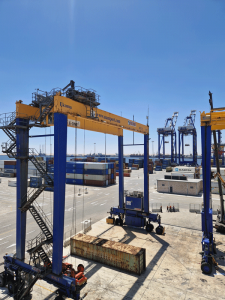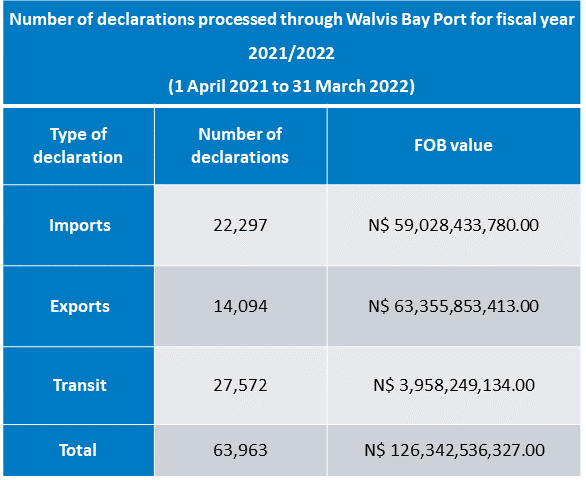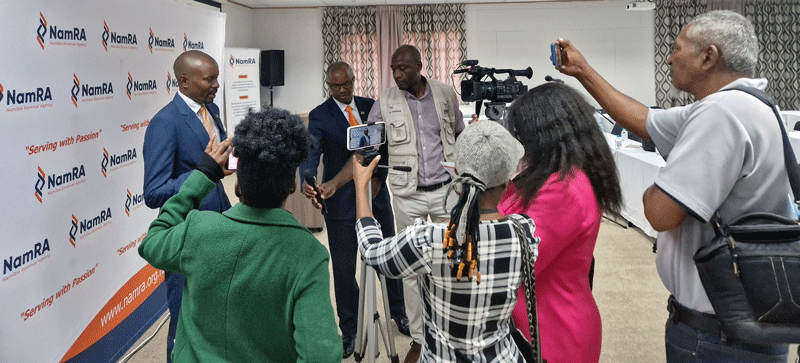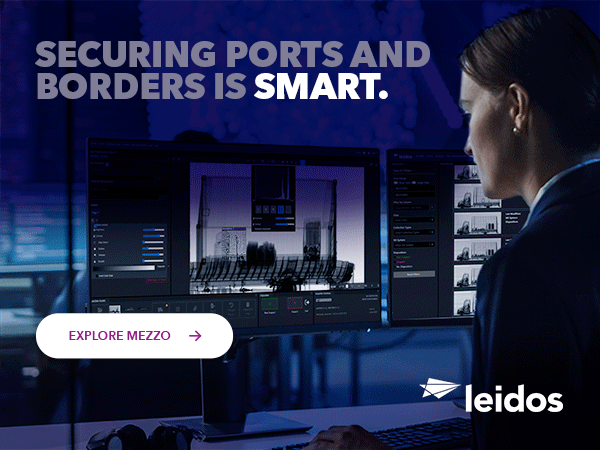Namibia’s experience of conducting its first Time Release Study
24 June 2024
By the Namibia Revenue Agency (NamRA)Article 7.6.1 of the Trade Facilitation Agreement (TFA) encourages World Trade Organization Members “to measure and publish their average release time of goods periodically and in a consistent manner, using tools such as, inter alia, the Time Release Study (TRS) of the World Customs Organization”. Developed in the early 1990s and regularly updated since then to provide a globally accepted methodology to measure the actual time required for the release and/or clearance of goods, the TRS has acquired new significance with the advent of the TFA in many countries. One such country is Namibia, whose government ratified the Agreement on 9 February 2018.
Beginnings
In May 2022, the Namibia Revenue Agency (NamRA) informed the WCO Secretariat of its intention to conduct a TRS. NamRA also requested the support of the Secretariat in conducting the TRS, given that it was its first experience of doing so. Shortly after, in November of the same year, Namibia became the 10th country to join the Accelerate Trade Facilitation Programme led by the WCO Secretariat and funded by the United Kingdom’s His Majesty’s Revenue and Customs (HMRC). NamRa’s TRS project was therefore naturally included as part of the multi-year strategic partnership established by the Programme.
The TRS project kicked off in December 2022 with online working sessions bringing together WCO Secretariat representatives and the NamRA TRS team. Led by a WCO TRS technical specialist, the sessions laid the foundation for the upcoming tasks. December 2022 marked a crucial period where stakeholders were identified and the design and scope of the TRS agreed. The TRS focused on break bulk goods, fuel and containerized goods either imported for home consumption or warehousing, or in transit.
Terms of reference (ToR) were developed to set up the TRS National Technical Working Group (NTWG) under the supervision of the National Trade Facilitation Committee (NTFC). The NTFC was established as recommended by Article 23.2 of the WTO TFA to facilitate and monitor the implementation of the provisions of the Agreement. NamRA, in its capacity as Chair of the NTFC, played a pivotal role in establishing the TRS NTWG. The latter comprises 18 NamRA officials, 16 officials from various government bodies as well as representatives from the Walvis Bay Port Users’ Association.
Port of Walvis Bay
 It was indeed decided that the TRS should be conducted at the Port of Walvis Bay, given the high volume of imports and exports passing through the port owing to its strategic position. The port serves as a vital link for the Southern African sub-regions and beyond, primarily through the Trans Kalahari Corridor and Walvis Bay-Ndola-Lubumbashi Development Road. The Trans Kalahari Corridor provides a direct route from the port to Pretoria in South Africa, through Botswana, reducing the distance by 400 km compared to other routes. As for the Walvis Bay-Ndola-Lubumbashi Development Road, it is a section of the Walvis Bay Corridors that links Namibia to Zambia, the Democratic Republic of the Congo, Malawi and Zimbabwe.
It was indeed decided that the TRS should be conducted at the Port of Walvis Bay, given the high volume of imports and exports passing through the port owing to its strategic position. The port serves as a vital link for the Southern African sub-regions and beyond, primarily through the Trans Kalahari Corridor and Walvis Bay-Ndola-Lubumbashi Development Road. The Trans Kalahari Corridor provides a direct route from the port to Pretoria in South Africa, through Botswana, reducing the distance by 400 km compared to other routes. As for the Walvis Bay-Ndola-Lubumbashi Development Road, it is a section of the Walvis Bay Corridors that links Namibia to Zambia, the Democratic Republic of the Congo, Malawi and Zimbabwe.

The primary objectives of the TRS project at the Port of Walvis Bay were to assess the actual time taken to clear cargo from the port, identify bottlenecks in the clearance process and develop solutions to overcome these bottlenecks. Additionally, the project aimed to enable the NTFC, NamRA and other government agencies to plan strategically for the effective implementation of WTO TFA measures.
Data collection
Virtual work meetings were held in January 2023 in preparation for the launch of the project. As part of the “Accelerate Trade Facilitation” Programme’s peer-to-peer exchange activities, the NTWG members gained valuable insights from a TRS specialist from the Zambia Revenue Authority (ZRA) and prepared the implementation plan for the TRS. Pamphlets were distributed to inform stakeholders and the general public, and a two-day TRS awareness workshop was organized for Customs officials and stakeholders at the end of January 2023 in Walvis Bay.
A few days later, on 7 February 2023, the TRS project was officially launched during an event presided over by NamRA Commissioner, Sam Shivute, and attended by 38 representatives from the private sector, government offices, the WCO Secretariat and the HMRC. The event fostered a sense of national buy-in and unity, and all stakeholders expressed their enthusiasm for the TRS project, recognizing its importance for Namibia as a country. Media representatives reported on the launch on national TV and in major newspapers.

Directly following the launch, from 8 to 15 February 2023, a series of meetings commenced at Walvis Bay during which NTWG members, guided by the WCO TRS technical specialist, deliberated on Customs procedures to be measured and the method to be used for data collection and capturing.
The study analysed import and transit declarations lodged during a sample period running from 16 February to 3 March 2023. The standard WCO definition of “time release” is the time taken from the arrival of the goods at the port to their eventual release by Customs. For the purposes of this study, the arrival time is approximated by the grant of “entry inwards” of the vessel, and the release time by the grant of “out of charge” (OOC) by Customs. This release time includes the time taken by all government agencies, including Customs.
Data were collected both manually and electronically. A total of 630 questionnaires were distributed to Customs brokers and freight forwarders between 16 February and 24 March 2023. Of that total, 208 questionnaires were not returned, 41 were returned blank, 59 were spoiled and only 322 were returned completed and valid for analysis.
In April 2023, the time records related to the accomplishment of various events were extracted from the computer systems of a number of shipping lines, the Namibian Ports Authority and Customs. From 22 May to 16 June 2023, a thorough process of verification of raw data was undertaken, the entire set of data collected was inserted into the WCO TRS software, and data analysis was conducted.
Findings
This thorough analysis provided the basis for the TRS Findings Stakeholder Validation Workshop from 20 to 21 July 2023 which was attended by executive officials of all TRS project stakeholders to ensure the broad-based buy-in of the results.
The TRS yielded significant findings, including:
- Underutilization of the self-assessment concept and pre-clearance: the current clearance process does not align with the internationally recommended best practice approach of “self-assessment” for duties and taxes by the declarant.
- Lack of automation with too many manual steps: although Customs uses ASYCUDA World to automate procedures, most regulatory functions are performed manually, consuming a significant amount of time, and leading to delays.
- Lack of coordination between agencies: there is a lack of a “whole of government” approach to processing cargo at the port of Walvis Bay, with each agency operating in silos.
- Underutilization of the central cargo examination area in the Walvis Bay Port: despite the presence of a dedicated inspection area, it is not adequately utilized.
Recommendations were drafted, and their implementation is ongoing, with consultation among the Walvis Bay Port TRS stakeholders scheduled to take place in July 2024.
In-house exercise
A TRS project might prove to be a rather costly exercise if it is implemented through a hired consultancy; however, NamRA conducted its TRS using in-house resources, with the WCO Secretariat covering only the costs of its experts. NamRA managed the project efficiently, spending a total of N$899,477 (approximately 45,432 euro). This covered expenses such as daily subsistence allowances for officials, fuel consumption for vehicles, and logistical costs for venue bookings including the kick-off and launch events. The NTWG members served as enumerators, hence no money was spent on hiring outside enumerators.
The success of the TRS project was attributed to the support received from the WCO Secretariat for the close cooperation established between the NamRA Commissioner and the Head of the Accelerate Trade Facilitation Programme, and for the active and concerted participation of all stakeholders. Establishing such a solid collaboration required clear communications with all parties involved, setting priorities and allocating resources effectively.
Way forward
Namibia is now confident in its ability to conduct TRS with minimal technical assistance at various border posts and at regular intervals to allow for continuous performance measurement. The first TRS project was designed to build the capacities of NTWG members, enabling them to conduct new studies in the future. During the TRS Findings Validation Workshop, it was decided that they should become permanent members for future TRS undertakings in order to safeguard institutional knowledge and leverage the experiences gained. New members may be added to the NTWG depending on the specific border posts to be studied, but permanent members will ensure consistency in the way the TRS are conducted and will provide guidance for future projects.
NamRA officials have already shared their experience, skills and knowledge with other countries in the region as part of the partnerships created under the Accelerate Trade Facilitation Programme and in the spirit of the WCO’s Customs-to-Customs support approach.
More information
NamRA’s TRS Report is available at https://www.namra.org.na/announcements/article/time-release-study-report
For more information on Namibia’s experience of TRS or the Accelerate Trade Facilitation Programme, please contact Donia Hammami, Head of the Accelerate Trade Facilitation Programme at TFAPartnerships@wcoomd.org.
For more information on the TRS methodology, please contact the Secretariat at TRS@wcoomd.org.


